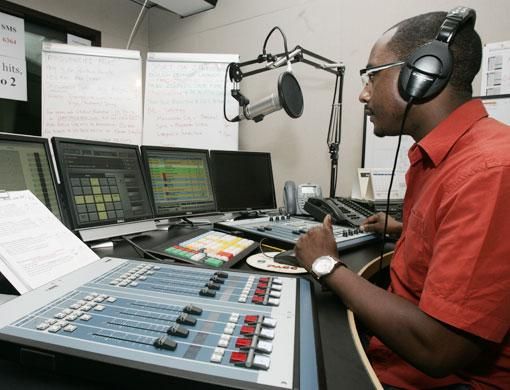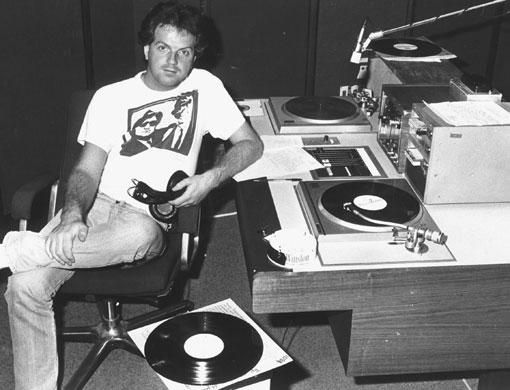Dubai: From frying pan-sized vinyl music records and old news from imported papers to MP3 players and wire services on the internet. Those are some of the ways in which radio has evolved in the UAE over the past 30 years.
In the mid 70s, the UAE's English language radio news presenters would ask Gulf Air crew to bring them newspapers from Europe and read out some of the stories on air. That obviously meant that the news was late.
This was way before the days of satellite TV channels and the internet, and radio was one of the few options that Dubai residents had to keep to date with the world's events. Airline crew also played a part in keeping the country's English-speaking residents up to date with the latest in music, bringing music records of the latest releases in Europe, once a week.
Richard Coram came to Dubai in the mid 70s to take over as a disk jockey at the Metropolitan Hotel. There he met a recruiter for what was to become the city's first English language FM station, Dubai 92, which started his career in UAE media.
"It was a really exciting time to be in Dubai. The city was developing rapidly," said Coram, who later went on to present on Dubai's first English television station Channel 33. "I got to cover great events and meet interesting people."
Business community
Dubai 92, he said, was launched as a service for the business community to get its message across through advertising. Advertising was so important to the station that his shows would often be cut abruptly to go into commercial messages, "which were pretty primitive compared to today's standards," he recalled.
"I had to do many voice overs in advertisements. Out of seven ads running, about five would have my voice on them. I would often get the script, and the advertisement would be on air in a couple of hours. It was as simple as recording the message, adding background music and putting it on air," he said.
By the mid to late 70s, when Coram joined, radio had become slightly more sophisticated. Instead of relying on foreign newspapers, presenters would receive telexes from wire agencies like Reuters and the Associated Press, and records of the latest pop hits would be sent from the BBC in London on a weekly basis with other radio shows that the station aired.
Mekki Abdullah of Mango Media who launched Channel 4 FM, has watched radio mature in the UAE. "The biggest change we've witnessed is the variety of stations we have today, ranging from languages to different genres of music," he said.
Back in the late 1990s, when the station was launched, radio jockeys would choose which music would be played, which was according to their tastes and liking. Today, says Abdullah, sophisticated technology has come up to improve standards. "Back in the day, self-employed people would work in radio in their extra time. Today, we have professionals working in radio."
Abdullah finds it an exciting time to be working in radio in the UAE. In five years, he predicts that DAB, digital audio broadcasting, will take over radio here. That will allow stations to find niche audiences and make available more choices to the listener.














